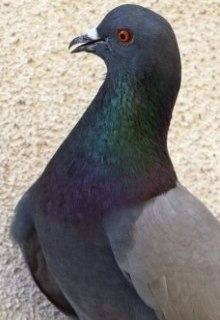PiCAS
Hercules House
4 George Street
Gosport
Hampshire
PO12 4SY
Email: enquiries@picasuk.com
Skype: picas.uk
PiCAS is a company registered in England and Wales with company number 05206567
VAT No: 858 1204 26


|

|
|
Why Lethal Bird Control Fails
Scientific research* and research carried out by the PiCAS Group has proven, conclusively, that all lethal methods of pigeon control are totally ineffective in the medium and long-term reduction of pigeon numbers.† The same applies to the control of virtually every other species of wild bird.† In areas where lethal control operations have been carried out there will be seen to be an initial short-term reduction in numbers but, within a matter of weeks, pigeon numbers will have increased back to the pre-cull figure and in most cases will have exceeded it. This is because killing adult pigeons in a feeding flock favours younger birds that would otherwise have a poorer chance of survival. Many older non-breeding birds are removed during these culling operations and the younger healthy breeding stock remains in situ and thrives as a result. The facts demonstrate quite clearly that lethal control cannot be seen as a viable method of reducing flock size under any circumstance, irrespective of the size or extent of the problem. Quite simply, it is a completely ineffective control option, whether provided as a stand-alone control or whether it is provided alongside the installation of deterrents and anti-roosting devices.
Pigeons control their own numbers very effectively according to the volume of food available to them. An adult pair of pigeons will usually breed 4-6 times a year but can breed more frequently in optimum conditions, producing 2 young each time. If, however, the food supply reduces and there is only sufficient food available to support the existing flock, adult birds may only breed once or twice a year or possibly not at all. Pigeons will not breed if there is insufficient food to service the needs of their young. If the food supply increases for any reason (following a cull for example), pigeons will breed continuously until the flock reaches the point where it is fully exploiting the food available to it. In other words there is a minor population explosion each time a cull takes place. The end result is an estimated 15% -30% increment in flock size over and above the pre-cull figure. Commercial values have now overtaken good working practice in the pest control sector with pest control contractors recommending culling at every opportunity; as a direct result of this stance pigeon numbers throughout the UK continue to rise year on year. This is clearly not in the interest of those experiencing problems with pigeons (and other species of wild bird) and it is yet another example of the pest control industry putting profit before clientís needs.
Another reason for the steady increase in pigeon flock size throughout the UK is the deliberate and persistent feeding of pigeon flocks by a small number of dedicated pigeon feeders. Virtually every town or city in the UK has at least one or two deliberate and persistent pigeon feeders who feed large quantities of food to local flocks on a daily basis. Because pigeon flock size is based on the extent of available food, no conventional controls, irrespective of their effectiveness, can reduce pigeon numbers in a given area. In order to achieve this goal the problem must be dealt with at source. This is another area where the pest control industry fails its client base. Pest control contractors do not even attempt to deal with the source of the problem, they deal exclusively with the problem itself and normally by recommending methods of control that simply entrench and exacerbate the problem for the client. Excessive feeding by persistent pigeon feeders, combined with lethal methods of control recommended by most pest control contractors have resulted in a growing problem for which there is no quick and easy solution. The only beneficiaries are the pest control industry and those that derive pleasure from feeding pigeons.
The pest control industry has created a niche for itself by recommending lethal control options to its target client base and therefore it comes as no surprise to find that the UK has greater problems with pigeons (and many other so-called pest species of birds) than any other country worldwide, with the possible exception of the USA. This is because the pest control industry in the UK and USA pumps out huge volumes of misleading propaganda each year in an effort to convince the public, and those experiencing bird-related problems, that there is a need to control wild bird populations lethally, when in reality lethal control will simply exacerbate and compound the problem. Pest control is a multi-billion dollar industry worldwide with national and international pest control companies recording massive annual profits. This fact alone confirms that the commonly used scare tactics employed by the pest control industry clearly have the desired effect. Conventional pest control services such as culling will only ever benefit the industry that provides them and never the client.
It is not only the bird control sector where the use of lethal control is a wasted effort. Virtually every wild species on the planet will react and respond to lethal controls in the same way that birds do. Short-term gains are not the goal of those experiencing problems with wild animals and birds but this is all that is available when using lethal controls. In reality the average property owner would be better to do nothing at all than to employ lethal methods in an effort to control wild birds on their property. Population size will remain static if no action is taken (unless available food increases dramatically) and yet if lethal controls are used population size will increase rapidly. A bird-related problem can always be resolved by using humane and non-lethal control options that will provide the client with a sustainable and cost-effective control system. There is never a need to use lethal control or a circumstance where it will be anything other than completely ineffective.
Property owners must also take into consideration the legal implications of buying in lethal bird control services. A vast majority of culling operations that are sold to clients contravene the terms and conditions of the General Licences upon which pest control contractors are required to act and are, as a result, illegal. Clearly, few if any pest control companies are aware of the terms and conditions of the General Licences based on the huge volume of culls that are undertaken each year in the UK. If a pest control contractor offers a culling service, and if that service falls outside the criteria laid down by the General Licence, it is the client that is held legally responsible, not the pest control contractor.
Anybody experiencing a bird-related problem should always seek independent advice from a company such as PiCAS that has no vested interest in selling products, culling services or installation services. Pest control services and products are extremely expensive, commonly miss-sold and rarely offered with guarantees of any description.
Acknowledgements:
* Regulation of the street pigeon in Basel by Daniel Haag-Wackernagel, 1992
return to top of page
|
|
|

|
|

The PiCAS Group will provide advice on the control of any bird species. Advice is most commonly sought for problems relating to the following:
Pigeon or Rock Dove: Pigeons are never more at home than when roosting and breeding on buildings in urban areas and as a result they are the most commonly controlled species of bird on the planet. Conventional pest control options such as lethal control has simply acted to increase pigeon numbers, not reduce them. The PiCAS Group has specialised in pigeon control for decades, researching and designing effective and sustainable pigeon control systems and as a result is now considered to be the foremost authority on the subject worldwide. PiCAS will provide advice on the protection of individual buildings and sites through to the provision of area-wide pigeon control systems for local authorities.
Gulls: Gulls have historically caused problems for property owners in towns and cities close to coastal areas but now many species of gull, including herring gulls, black headed gulls and black backed gulls are becoming common in many inland urban areas. These species are commonly known as roof-nesting gulls. Effective gull management systems are complex and to be effective they must be holistic and deal with the source of the problem as well as the problem itself. PiCAS will advise on all aspects of humane but effective gull control.
Ducks and Geese: Ducks and geese are a growing problem throughout the UK in villages, towns and even city parks with deliberate and persistent feeding of the birds being the root cause of the problem. Duck control and goose control is never straightforward and can be a highly public and emotive issue. PiCAS has extensive experience of providing humane but effective duck and goose management systems for councils, property owners and site managers throughout the UK.
Canada Geese: This species is starting to cause major problems for property owners and site managers throughout the UK. As with most waterfowl controls, Canada goose control systems are complex and must be holistic. PiCAS has extensive experience of controlling Canada goose populations, whether they be static or migratory, and will tailor a Canada goose control programme to the specific needs of the client.
Starlings and Sparrows: Although starlings were a common problem in town and city centres worldwide during the 1960ís and 1970ís, fewer problems are now being reported. However, where starlings do roost in large numbers problems can be extreme and PiCAS will provide any property owner with a tailor-made starling control system.
Sparrow populations are in rapid decline and as a result fewer sparrow-related problems are being reported. Sparrows do sometimes cause problems in food production plants and food preparation facilities however. Sparrow control is rarely simple or straightforward due to the fact that these small birds can easily access roof voids or internal areas due to their size. PiCAS will provide advice on humane but effective sparrow control.
Wood Pigeons and Collared Doves: These species are more complex to control and are more commonly associated with rural areas. Both species are now becoming more common in urban areas where they can cause problems for residential property owners. Control options for these species are limited but PiCAS will offer advice where both wood pigeon control and collared dove control is concerned.
Rook, Magpie, Jackdaw and Hooded Crow (Corvids): These species commonly cause problems in both urban and rural areas and can be complex to control. Rook control and Crow control options are usually limited to rural areas where they are perceived to cause crop damage and predate on livestock in the case of crows, but nuisance is exaggerated. Rooks often breed in rookeries and can cause significant disturbance as a result of noise. Magpie control is more commonly sought in urban areas due to their growing presence in domestic gardens as a result of persecution in rural areas. Jackdaws rarely cause problems other than nesting in chimney pots and therefore jackdaw control is extremely straightforward. All members of the Corvid family can be controlled effectively using non-lethal and holistic controls.
|